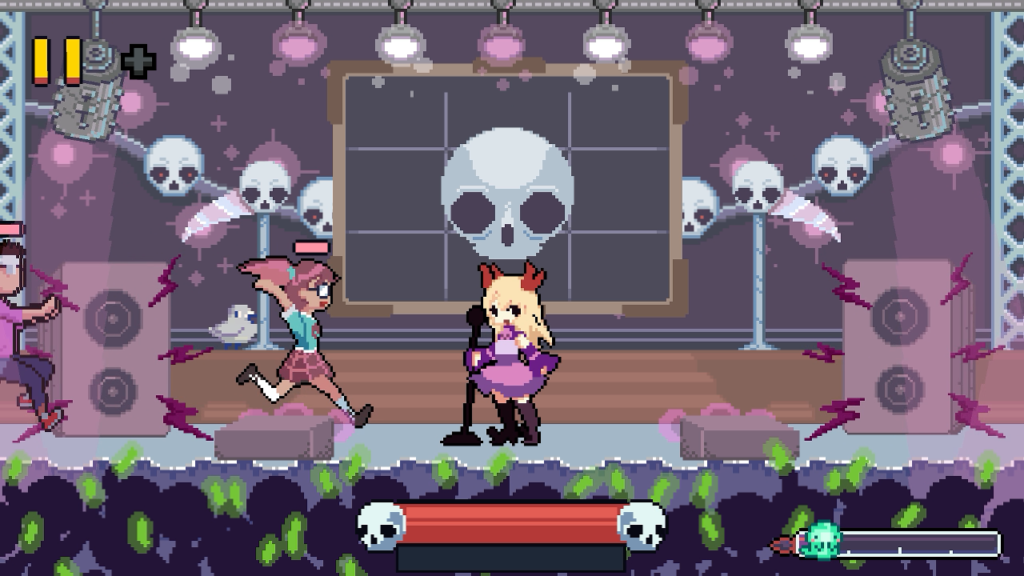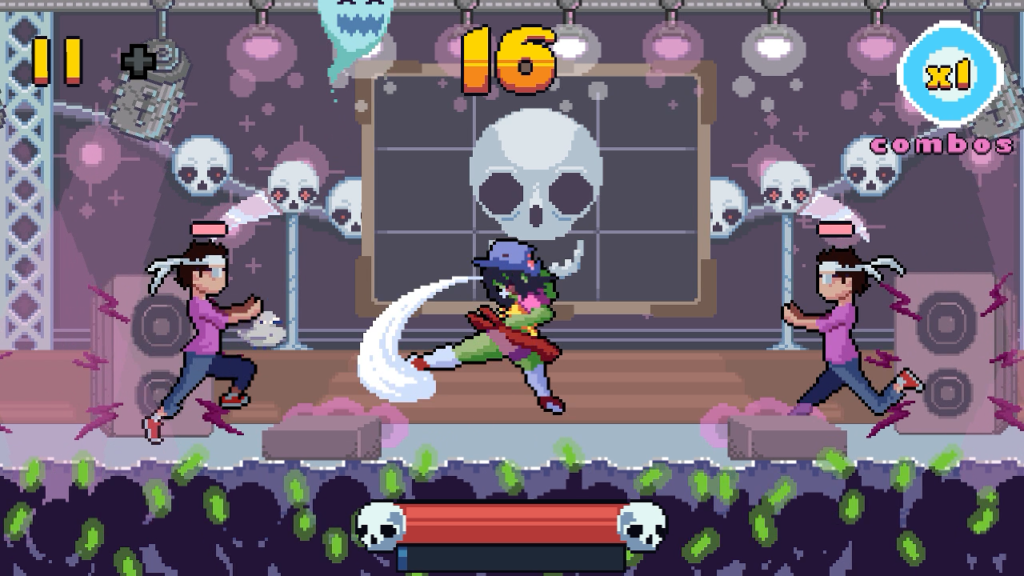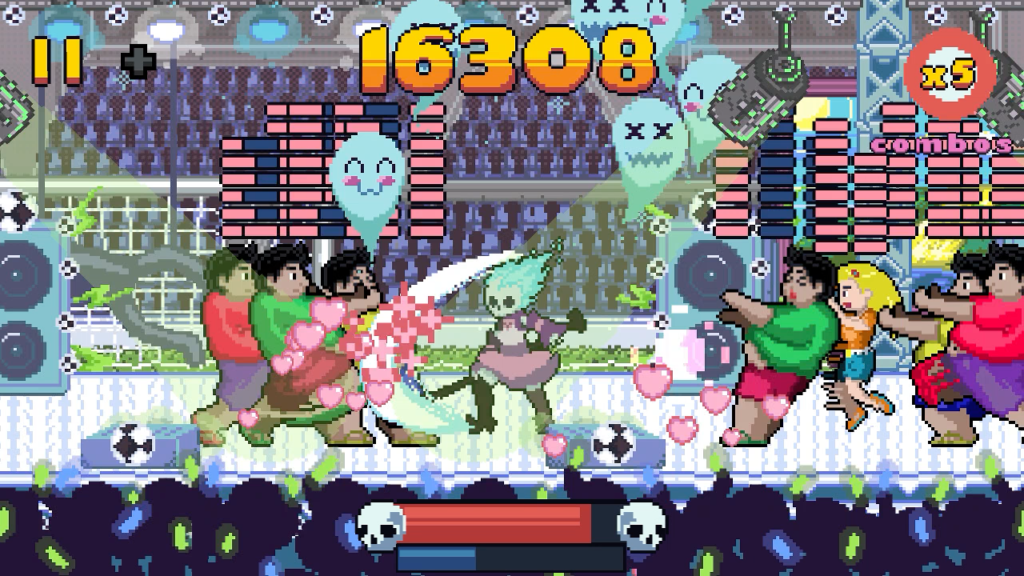The infernal void hungers for the souls of the living, so the forces of darkness hatch an evil plot: Put on a global concert tour and cull the cheering throngs who come to watch! In Kawaii Deathu Desu, Death is infused with the power of kawaii, the Japanese concept of “cuteness,” and becomes Death-chan, an idol singer whose microphone stand doubles as her scythe. By reaping her fans’ souls, Death-chan can summon her friends to perform their own concerts, buy new costumes, or increase her own unholy power, all transactions on a quest for world domination.

In Kawaii Deathu Desu, I select a character and level then try to hold off fans who rush the stage from the left and right. By pressing the shoulder buttons, my character unleashes an attack that damages the fan. If it kills them, their soul is added to my collection; if they survive, they are knocked back a small distance then resume their charge. My character also builds up a super meter with every attack which unleashes a unique screen-clearing special attack; Death-chan summons a larger, deadlier scythe from the void, while Emmy the zombie drags fans into the ground with the hands of her buried allies.
Succeeding in Kawaii Deathu Desu boils down to alternating the left and right shoulder buttons at a rapid pace. Though their numbers increase in speed and density as my dark artists tour the world, fans are differentiated mostly by health. Some later fans try to trick me by sliding to the opposite side at the last second, but this does nothing to change the effective strategy. By alternating shoulder button presses I can complete levels without taking a hit and without looking at the screen.

Kawaii Deathu Desu is spread across twelve venues, each with three difficulties. Grind is built in: Before I may attempt higher difficulties or progress to the next venue, I must first play the venue on its easiest difficulty two or three times. This unlocks the venue’s Hard difficulty, which is rated out of three stars depending on how many hits I take, and its Insane difficulty, which continues until my character runs out of hit points. I earn souls for each fan I kill, which I may spend on new characters, costumes, or to empower my unlocked character. To keep up with the more resilient fans in later venues I am all-but-forced to pour all souls into upgrading Death-chan’s stats at first. After an hour of grinding, Death-chan’s level is capped, I have earned three stars on every venue’s hard mode, and all that remains is hours of grinding souls to unlock the remaining characters and costumes for use on levels I’ve already finished.
Kawaii Deathu Desu is short, shallow, and devolves into a grind for cosmetic unlocks long after I’ve already seen everything it has to offer.

It would be easier to look past Kawaii Deathu Desu’s shallow and grindy design if it did more with its premise. Though Death-chan and her friends are idols singers performing at stadium venues, the use of music in each level feels incidental. A meter in the corner builds to the end of each “performance,” chiptune music looping endlessly over the melee and into a results screen. Music is often inaudible over the player characters’ exertions, sounding more like a beat ‘em up videogame than a music videogame, because that’s what it is. The setting is a paint job on a generic punching game.
Kawaii Deathu Desu has an evocative premise but fails to expand on it to create rewarding design. Fans require no effort to cull past repetitive alternating button presses. It tries to create longevity through a list of expensive upgrades and cosmetics but doesn’t offer an interesting enough experience to entice unlocking them. And it squanders its setting, exploiting an aesthetic and culture but not utilizing it to create a distinct experience. Kawaii Death Desu is a repetitive beat ‘em up with a shallow idol singer gimmick.